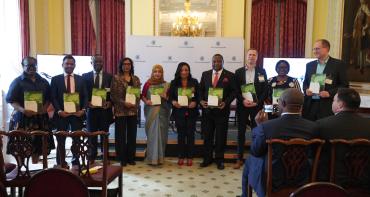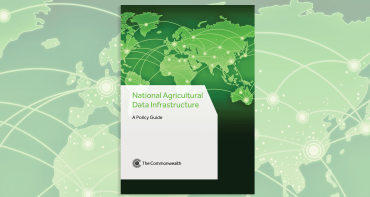Commonwealth countries can do much more to expand trade links with the UK, post-Brexit. That’s the conclusion of trade experts at the Commonwealth Secretariat writing a new set of policy briefings on life after Britain’s decision to pull out of the European Union.

Commonwealth countries can do much more to expand trade links with the UK, post-Brexit. That’s the conclusion of trade experts at the Commonwealth Secretariat writing a new set of policy briefings on life after Britain’s decision to pull out of the European Union. At its peak in 2012, UK-Commonwealth Trade accounted for US$120 billion. Last year, that figure fell to US$91 billion amid significant decline in trade globally, but there are opportunities to increase trade.
“We already know there’s a Commonwealth advantage in trading between member states”, said the Secretariat’s head of international trade policy, Dr Mohammad Razzaque. “Where the UK is already a significant trading partner, Commonwealth members can mobilise pro-active policy support to relatively easily expand trade further. In some cases, bilateral trading arrangements could also be the way forward.”
Certain Commonwealth members rely heavily on the UK market. Seven developing nations send over 10 percent of their world exports to the UK: Botswana, Belize, Seychelles, Mauritius, St Lucia, Sri Lanka and Bangladesh. Twenty-four countries send more than 30 percent of their total EU trade exports to the UK. For example, the UK absorbs more than 70 percent of such exports from St Lucia and Tuvalu. The UK is the biggest importer of sugar in the EU. It buys more than 80 percent from Belize and 70 percent from Fiji bound for the EU. Eighty percent of Kenya’s vegetable exports to the EU and almost all of Canada’s gold and precious metals are destined for the UK. Post-Brexit related shocks, such as a weaker pound, will have had an effect on these countries, according to the briefings.
From beef and bananas to sugar and fresh vegetables to textiles and clothing, a number of Commonwealth states depend heavily on the UK market for their exports. Dr Razzaque said, “What’s impressive is that Commonwealth countries export 5,088 items, only to the UK. That’s worth US$9 billion. Right now, many of these products from least developed countries, small states and Sub-Saharan African countries aren’t generating major revenues. But they show tremendous potential for future growth. Post-Brexit, the UK should be looking to assess real potential and supporting development. Who knows what can happen with a little foresight.”
Although least developed countries (LDCs) and African, Caribbean and Pacific (ACP) nations already enjoy generous market access in the EU and UK, some of these exporters compete successfully without relying on any trade preferences. Seven LDCs export at least 10 products each to the UK without any trade preferences, where EU Most Favoured Nation (MFN) tariffs are at zero.
“We need to undertake further analysis on products bound for the UK which are clearly important for Commonwealth countries,” said Dr Razzaque. “Some established products already generate substantial export income. But a large number of other items hold great promise for new trade. I’m convinced developing countries in the Commonwealth can benefit from business with the UK and vice-versa.”


